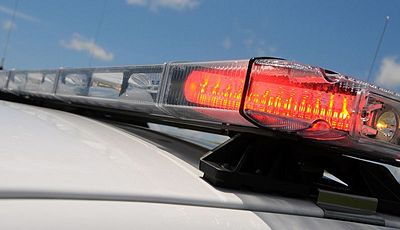907.6 Fatal Crash Reviews

It is vital that we continue to progress with driving down roadway fatalities in our state. Due to our statewide efforts we have seen great success, but we must now take it a step further and begin a more formal process of reviewing each fatal crash location on the state system to look for trends or deficiencies that can be corrected statewide.
District Traffic personnel shall review each fatal crash on the state system. The purposes of the review are to document the conditions of the roadway where fatal crashes occur, to verify that there are no deficiencies at that location and to identify any trends that may exist statewide. As districts collect information on these crashes, they should identify systematic improvements that could be made to improve our roadways. These reviews are to be considered as part of the MoDOT investigation and the review will become part of the investigation file maintained by the Central Office Division of Risk and Benefits Management.
This engineering review is not meant to replace the District’s Risk and Benefits Management review, but be a more in-depth review of the crash specifics at the location and to look for trends and possible solutions to those trends. District Traffic personnel and Risk and Benefits Management Division should work together to ensure that they are not duplicating efforts.
| Directions for submitting the survey |
| Form letter to submit information to Regional Counsel |
The review should include a review of the crash report and/or radio reports on the Missouri State Highway Patrol (MSHP) webpage, a site visit, a detailed review of the photos taken of the site and a summary of the findings.
Some of the reviews need to be a multi-disciplined review that includes other safety partners, such as the following groups:
- Local law enforcement
- MSHP
- Maintenance
- City/county engineering
- Public officials
Many of the fatal crash reviews can be done by an individual, but at a minimum, the following types of fatal crashes would require the multi-disciplined review:
- High profile crashes (i.e. school bus crash, pedestrian)
- More than one fatality involved
- Any location where there has been a recent change to the roadway (new design, realignment, etc.)
- Work Zone involved/related
- Unintended use of the roadway facility (i.e. wrong way, u-turn)
A Fatal Crash Review form has been created and shall be used for each fatal crash on the state system. The questions on the form were developed to help in determining if trends are occurring statewide. The documented responses on the form shall be entered into a survey located on SharePoint (location and date information will not be entered in this SharePoint site). The survey will show responses electronically and visually display any trends that may exist statewide. Directions for submitting the survey are available.
This review is considered a portion of the MoDOT investigation of the crash and the site specific responses shall be provided to Regional Counsel for review. All pictures that are gathered at the fatal crash site will also be included in the information provided to Regional Counsel. A form letter for this purpose is available. After review, the Regional Counsel will forward the information to the Central Office Division of Risk and Benefits Management to be included in the investigation file requested by the Chief Counsel.
At each Safety Quality Circle meeting, each district will give a report on any trends they have seen related to their fatal crashes. The Safety Quality Circle will discuss and determine if there are any statewide trends that are developing as well as possible solutions.
Additional considerations:
- Regional Blueprint Coalition involvement. Share the information and discuss at regional meetings.
- Continue providing weekly update of fatalities (summary information) to each district. That information should be shared with the Regional Coalition.
- Training – Accident reconstruction, Road Safety Audit (uses the same concept – multi-disciplined review), Documentation training for Maintenance, Traffic, and/or Risk Management personnel by ACTAR certified instructors.